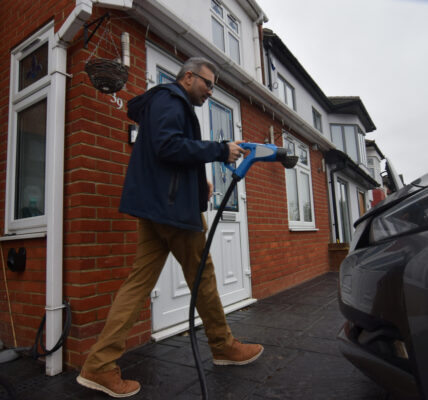EC Proposes 10 New European Partnerships And €10B For Green & Digital Transition; Clean Hydrogen Partnership
The European Commission proposed setting up 10 new European Partnerships between the European Union, Member States and/or the industry. The goal is to speed up the transition towards a green, climate neutral and digital Europe, and to make European industry more resilient and competitive. The EU will provide nearly €10 billion of funding that the partners will match with at least an equivalent amount of investment.
This combined contribution is expected to mobilize additional investments in support of the transitions, and create long-term positive impacts on employment, the environment and society.
The proposed partnerships aim to improve EU preparedness and response to infectious diseases, develop efficient low-carbon aircraft for clean aviation, support the use of renewable biological raw materials in energy production, ensure European leadership in digital technologies and infrastructures, and make rail transport more competitive.
The partnerships include the Clean Hydrogen Partnership which will build on the success of the Fuel Cells and Hydrogen Joint Undertaking (FCH JU) with a proposed budget of €1 billion of public funding complemented by an equivalent private investment.
This Partnership will be organized in three pillars: hydrogen production, hydrogen distribution and hydrogen usage in transport, industry, buildings. As a sign of the growing interest in hydrogen, six other sectoral partnerships will also support hydrogen technologies—road transport, train, maritime, aviation, clean steel and clean process industries which now consider hydrogen as a key tool to achieve their climate objectives.
The Partnership will include R&D but also large-scale demonstration and some early deployment in flagship projects.
The other nine Partnerships, some of which are building on existing joint undertakings, are the following:
- Global Health EDCTP3: This partnership will deliver new solutions for reducing the burden of infectious diseases in sub-Saharan Africa, and strengthen research capacities to prepare and respond to re-emerging infectious diseases in sub-Saharan Africa and across the world. By 2030, it aims to develop and deploy at least two new technologies tackling infectious diseases, and support at least 100 research institutes in 30 countries to develop additional health technologies against re-emerging epidemics.
- Innovative Health Initiative: This initiative will help create an EU-wide health research and innovation ecosystem that facilitates the translation of scientific knowledge into tangible innovations. It will cover prevention, diagnostics, treatment and disease management. The initiative will contribute to reaching the objectives of Europe’s Beating Cancer Plan, the new Industrial Strategy for Europe and the Pharmaceutical Strategy for Europe.
- Key Digital Technologies: They encompass electronic components, their design, manufacture and integration in systems and the software that defines how they work. The overarching objective of this partnership is to support the digital transformation of all economic and societal sectors and the European Green Deal, as well as support research and innovation towards the next generation of microprocessors. Together with the Declaration on a European Initiative on processors and semiconductor technologies signed by 20 Member States, an upcoming Alliance on microelectronics, and a possible new Important Project of Common European Interest under discussion by Member States to foster breakthrough innovation, this new partnership will help boost competitiveness and Europe’s technological sovereignty.
- Circular Bio-based Europe: This partnership will contribute significantly to the 2030 climate targets, paving the way for climate neutrality by 2050, and will increase the sustainability and circularity of production and consumption systems, in line with the European Green Deal. It aims to develop and expand the sustainable sourcing and conversion of biomass into bio-based products as well as to support the deployment of bio-based innovation at regional level with the active involvement of local actors and with a view to reviving rural, coastal and peripheral regions.
- Clean Aviation: This partnership puts aviation en route to climate neutrality, by accelerating the development and deployment of disruptive research and innovation solutions. It aims to develop the next generation of ultra-efficient low-carbon aircraft, with novel power sources, engines, and systems, improving competitiveness and employment in the aviation sector that will be especially important for the recovery.
- Europe’s Rail: This partnership will speed up the development and deployment of innovative technologies, especially digital and automation ones, to achieve the radical transformation of the rail system and deliver on the European Green Deal objectives. By improving competitiveness, it will support European technological leadership in rail.
- Single European Sky ATM Research 3: The initiative aims to accelerate the technological transformation of air traffic management in Europe, aligning it to the digital age, to make the European airspace the most efficient and environmentally friendly sky to fly in the world and to support the competitiveness and recovery of Europe’s aviation sector following the coronavirus crisis.
- Smart Networks and Services: This partnership will support technological sovereignty for smart networks and services in line with the new industrial strategy for Europe, the new EU Cybersecurity Strategy and the 5G Toolbox. It aims to help resolve societal challenges and to enable the digital and green transition, as well as support technologies that will contribute to the economic recovery. It will also enable European players to develop the technology capacities for 6G systems as a basis for future digital services towards 2030. More information is available here.
- Metrology: This partnership aims to accelerate Europe’s global lead in metrology research, establishing self-sustaining European metrology networks aimed at supporting and stimulating new innovative products, responding to societal challenges and enabling effective design and implementation of regulation and standards underpinning public policies.
The Commission proposal needs now to be adopted by the Council of the European Union, following consultation with the European Parliament.
The European Partnerships are approaches provided by Horizon Europe, the new EU research and innovation program (2021-2027). They aim to improve and accelerate the development and uptake of new innovative solutions across different sectors, by mobilizing public and private resources. They will also contribute to the objectives of the European Green Deal and strengthen the European Research Area. Partnerships are open to a wide range of public and private partners, such as industry, universities, research organizations, bodies with a public service mission at local, regional, national or international level, and civil society organizations, including foundations and NGOs.







